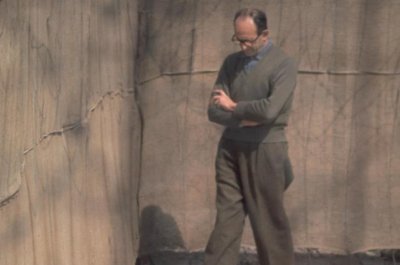Topic: Alexandre Gustave Eiffel
Alexandre Gustave Eiffel né Bönickhausen (December 15, 1832 – December 27, 1923; French pronunciation: , English: /ˈaɪfəl/) was a French structural engineer from the École Centrale Paris, an architect, an entrepreneur and a specialist of metallic structures. He is acclaimed for designing the world-famous Eiffel Tower, built 1887–1889 for the 1889 Universal Exposition in Paris, France. Notable among his other works is the armature for the Statue of Liberty, New York Harbor, United States.
e, Bönickhausen. During his youth, the two strongest influences on Eiffel were both successful chemists, his uncles Jean-Baptiste Mollerat and Michel Perret. Both men spent a lot of time with young Eiffel, filling his head with everything from chemistry and mining to religion and philosophy. At school, Eiffel was extremely clever, but not very studious. While attending high school at Lycée Royal, Eiffel was bored and felt that the classes were a waste of time. It was not until his last two years at school that Eiffel found his niche; not in engineering, but in history and literature. Eiffel's study habits improved and he graduated with a degree in both science and humanities. Eiffel went on to attend college at Sainte Barbe College in Paris, in order to prepare for the difficult entrance exams into the most prestigious engineering institutions in France. Ultimately, Eiffel attended the École Centrale des Arts et Manufactures in Paris where he studied chemistry, receiving the equivalent of a Master of Science degree in 1855. École Centrale was a liberal private school that is now known as one of the top engineering schools in Europe. His mother's coal business provided ample income for the family and provided the funds for Gustave to receive his university education. The year 1855 was the same year that Paris hosted the first World's Fair. After graduation, Eiffel's uncle offered him a job at his vinegar works in Dijon, France. However, a family dispute removed that opportunity, and Eiffel soon accepted entry-level employment with a company that designed railway bridges.
Charles Nepveu provided Eiffel with his first job as one of many project managers for a railway bridge located in Bordeaux, France. During the construction process, fellow engineers on the project were steadily quitting, and Eiffel eventually took charge of the entire project. Nepveu saw the work that Eiffel performed on the site, and continued to place Eiffel in other jobs that involved project management of railway bridges and structures. During these projects, Eiffel got to know other engineers of the time, and he would be remembered for his work and allowed to work on other projects. Nepveu was a strong influence on Eiffel that helped him become more successful with his future projects.
It uses material from the Wikipedia article "Alexandre Gustave Eiffel."






